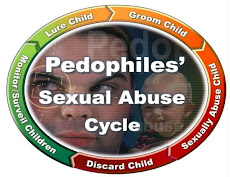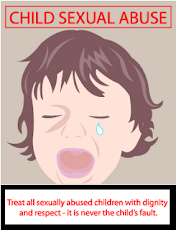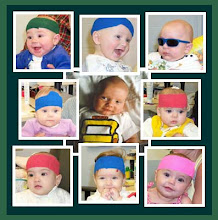Sexual harassment and abuse of students by teachers
Provided by
DR WIDODO JUDARWANTO
CLINIC FOR CHILDREN
WE SMILE WITH YOU, WORKING TOGETHER SUPPORT ALL OF CHILDREN
Organized by Yudhasmara Foundation
JL TAMAN BENDUNGAN ASAHAN 5 JAKARTA PUSAT, JAKARTA INDONESIA 10210
PHONE : (021) 70081995 – 5703646
email : wido25@hotmail.com, cfc2006@hotmail.com
www.clinicforchildren.blogspot.com/
Sexual harassment in education is unwelcome behavior of a sexual nature that interferes with a student’s ability to learn, study, work or participate in school activities. In the U.S., it is a form of discrimination under Title IX of the Education Amendments of 1972.[1] Sexual harassment involves a range of behavior from mild annoyances to sexual assault and rape.[2][3]
The definition of sexual harassment includes harassment by both peers and individuals in a position of power relative to the person being harassed. In schools, though sexual harassment initiated by students is most common, it can also be perpetrated by teachers or other school employees, and the victim can be a student, a teacher, or other school employee. Sexual harassment of students by teachers or other school employees can cause particularly serious and damaging consequences for the victim. [4] While sexual harassment is legally defined as "unwanted" behavior, many experts agree that even consensual sexual interactions between students and teachers constitutes harassment because, they say, the power differential creates a dynamic in which "mutual consent" is impossible.[2]
The definition of sexual harassment includes harassment by both peers and individuals in a position of power relative to the person being harassed. In schools, though sexual harassment initiated by students is most common, it can also be perpetrated by teachers or other school employees, and the victim can be a student, a teacher, or other school employee. Sexual harassment of students by teachers or other school employees can cause particularly serious and damaging consequences for the victim. [4] While sexual harassment is legally defined as "unwanted" behavior, many experts agree that even consensual sexual interactions between students and teachers constitutes harassment because, they say, the power differential creates a dynamic in which "mutual consent" is impossible.[2]
Prevalence
In their 2002 survey, the AAUW reported that, of students who had been harassed, 38% were harassed by teachers or other school employees. One survey, conducted with psychology students, reports that 10% had sexual interactions with their educators; in turn, 13% of educators reported sexual interaction with their students.[6] In a survey of high school students, 14% reported that they had engaged in sexual intercourse with a teacher. (Wishnietsky, 1991) In a national survey conducted for the American Association of University Women Educational Foundation in 2000 found that roughly 290,000 students experienced some sort of physical sexual abuse by a public school employee between 1991 and 2000. And a major 2004 study commissioned by the U.S. Department of Education found that nearly 10 percent of U.S. public school students reported having been targeted with sexual attention by school employees. Indeed, it has been claimed that sexual harassment and abuse by teachers is 100 times more frequent than abuse by priests.[7][unreliable source?]
Psychology and behaviors of teachers who sexually harass students
Most complaints about teachers' behavior tend to center around what is felt to be inappropriate speech in a class or discussion, such as using sexist or sexual references to make a point. However, some teachers can take things to a more extreme degree. Relationships between students and teachers can be often quite intimate and intense as they share common passions and interests. Students are dependent on their teachers' approval for academic success, opportunities, and later career success. They will talk about personal issues, such as problems at home, or with boyfriends/girlfriends. Such closeness and intimacy can blur the professional boundaries and lead people--both school employee and student alike--to step over the line. [8] Martin writes,
"...teachers hold positions of trust. They are expected to design teaching programmes and carry out their teaching duties to help their students develop as mature thinkers. This may involve close working relationships in tutorials or laboratories, individual meetings to discuss projects or essays, and more casual occasions for intellectual give and take. For impressionable young students, the boundaries between intellectual development and personal life may become blurred. In this situation, some academics easily move from intellectual to personal to sexual relationships."[9]
A teacher who harasses a student may be doing so because he or she is experiencing the stress from various personal problems or life traumas, such as marital trouble or divorce, a professional crisis, financial difficulties, medical problems, or the death of a spouse or child. Even though the behavior is unacceptable, it can be a symptom of the effects of such stresses, and may stop if the situation changes, or the pressures are removed.[10]
Sexual relationships between students and teachers
There has been debate over whether or not sexual interactions and relationships between students and teachers constitutes abuse, or if there are benefits that outweigh the risks. In Britain, sexual relationships between students under the age of 18 were not outlawed until 2003 in The Sexual Offenses Act. [11]
While sexual relationships with pupils under the age of 18 is illegal in the U.S., this is not the case in higher education. Jane Gallop argues that students learn more effectively in a sexually charged atmosphere. In her book, she describes the separate occasions she slept with two male professors on her dissertation committee, and when she first began sleeping with her own students as an assistant professor. (Gallop, 1997). In her September 2001 essay in Harper's Magazine, The Higher Yearning, academic Cristina Nehring celebrated the educative nature of such sexual relationships: “Teacher-student chemistry is what fires much of the best work that goes in universities, even today”[12]
However, in recent years, there has been controversy over even consensual sexual interactions between students and teachers, especially within the last decade.[13] Like many, Gallop asserts that the relationships between a teacher and a student is very much like that of a parent and a child. (Gallop, 1997) However, it is this parallel that many say is the reason teacher-pupil sexual contact and relations are immoral because they are too closely akin to incest, and similar long-term damages can result. Some draw parallels with the phenomena of therapist abuse, or priest abuse. (Martin, 1993) Of his sexual relationship with Gallop at Cornell, Richard Klein admitted, "For decades I have felt guilt and shame for having performed toward her in a way that was unprofessional, exploitative, and lousy in bed."
Many experts argue that even consensual sexual interactions between students and teachers constitute sexual harassment. The most commonly expressed concern is over whether "mutual consent" can exist in a relationship where there is such a disparity in power between the people involved. Because of this, more and more schools are adopting policies that forbid amorous relationships between students and professors "in the instructional context" even when they are consenting (Smithson, 1990). Dzeich et al writes:
"Physical intimacy with students is not now and never has been acceptable behavior for academicians. It cannot be defended or explained away by evoking fantasies of devoted professors and sophisticated students being denied the right to 'true love.' Where power differentials exist, there can be no 'mutual consent.'" (Dzeich et al, 1990)
In an interview with the Chronicle of Higher Education, a dean at the University of Texas at Austin stated he'd like to crack down on consensual relationships between professors and students. "Wait until she graduates," he says he tells male professors. "We have a kind of sacred trust to the students," he explains. "They're coming here to get us to evaluate what their abilities are and what their future could be. These relationships poison the whole academic well."[14]
Dzeich argues that much damage occurs because of the betrayal by someone that the student trusted and respected. Moreover, seduction attempts which are masked by pretenses to academic and personal attention are particularly damaging because the student feels complicit in their own abuse. (Dzeich 1990)
Another consequence is that, when sex is an accepted behavior between teachers and students, it can be more difficult to raise concerns about sexual harassment. For example, unwanted sexual advances by a professor may be intimidating or even frightening, however, if sexual relations between staff and students is common at the school, it will be difficult for a student to identify this behavior as harassment. (Martin, 1993)
Sexual relations between teachers and students raises concerns about the abuse of trust and conflicts of interest--and these points are not usually covered in sexual harassment policies.
Conflicts of interest can arise when the professional responsibilities of a teacher are affected, or appear to be affected, by a special personal relationship with a student. These can include showing favoritism towards a student sexually involved with the teacher, or hostility towards a student due to a past relationship. If a teacher is sexually involved with a student, colleagues may feel pressured to give preferential treatment to the student, such as better marks, extensions on essays, extra help, or academic opportunities. When there are multiple relationships between several staff and students, the possibilities for conflict of interest are enormous. Even if there is no favoritism or hostility, it can be perceived by others to be exhibited.
There is also the question of the abuse of trust. This occurs when the trust associated with a professional relationship is destroyed because of non-professional actions or requests for non-professional actions. Martin writes, "Teachers are in a position of authority and trust to foster the intellectual development of their students. When they engage in sexual relations with a student, they violate that trust implicit in a professional teacher-student relationship." (Martin, 1993)
Effects of sexual harassment in education
In their 2006 report, "Drawing the Line" the AAUW found physical and emotional effects from sexual harassment:
68% of female students felt very or somewhat upset by sexual harassment they experienced;
6% were not at all upset.
57% of female students who have been sexually harassed reported feeling self-conscious or embarrassed
55% of female students who have been sexually harassed reported feeling angry.
32% female students who have been sexually harassed reported feeling afraid or scared.
The AAUW also found that sexual harassment effects academics and achievement:
"Students experience a wide range of effects from sexual harassment that impact their academics including: have trouble sleeping, loss of appetite, decreased participation in class, avoid a study group, think about changing schools, change schools, avoid the library, change major, not gone to a professor/ teaching assistant’s office hours. Students may experience multiple effects or just one. The wide range of experiences lowers the percentage of students who experience any particular effect."
16% of female students who have been sexually harassed found it hard to study or pay attention in class.
9% of female students dropped a course or skipped a class in response to sexual harassment.
27% of female students stay away from particular buildings or places on campus as a result of sexual harassment. [1]
Sexual harassment by teachers
After her experience as a student with Harold Bloom, Naomi Wolf wrote, "I was spiraling downward; I had gotten a C-, a D, and an F, and was put on academic probation. My confidence shaken, I failed in my effort to win the Rhodes Scholarship at the end of the term....Once you have been sexually encroached upon by a professor, your faith in your work corrodes. If the administration knew and did nothing—because the teacher was valuable to them—they had made a conscious calculation about his and our respective futures: It was okay to do nothing because I—and other young women who could be expected to remain silent—would never be worth what someone like Bloom was worth." Of the effects she now struggles with so many years later, she writes, "Keeping bad secrets hurts. Is a one-time sexual encroachment...a major secret or a minor one? Minor, when it comes to a practical effect on my life; I have obviously survived. This is the argument often made against accusers in sexual-harassment cases: Look, no big deal, you’re fine. My career was fine; my soul was not fine"[15]
The gender double standard
There is a myth regarding the extent of the damage caused by women who sexually abuse or harass. In an interview about the rise of sexual abuse by female teachers, Dr. Jeff Brown, a psychologist who treats female sex offenders stated, "There is definitely a double standard.....The impact they have is significant on their victims and sometimes we don’t regard the impact in a similar way as we do men." Moreover, female teachers who sexually harass or abuse students are consistently given significantly lighter punishments or reprimands than males who engage in the exact same behaviors. Some are never exposed at all. [16]
The National Association of Schoolmasters Union of Women Teachers-an British female education union, said that teachers who have sex with pupils over the age of consent should not be placed on the sex offenders register and that prosecution for statutory rape "is a real anomaly in the law that we are concerned about." This has lead to outrage from child protection and parental rights groups.[17]
It has been argued that the effects of pupil-teacher sexual harassment vary depending on the gender of the student and the harasser. In some states in the U.S., sexual relations between a woman and an underage male did not even constitute statutory rape until the 1970s. Many assert that most boys would be happy to have a teacher show sexual interest in them. [2]Others say that this is short-sighted, and the seriousness of the long-term effects far outweigh any immediate gratification. Experts say sexually victimized boys experience difficulties later in developing age-appropriate relationships and gravitate toward pornography and one-night stands. They are also more likely as adults to suffer depression, anxiety and drug addiction. The 16-year-old boy in California who had an affair with his 30 year old teacher proclaimed in a letter to the court, "I'm not the same boy." According to the boy's mother, he was so traumatized that his hair was falling out. "(She) took away my best friend, my hunting buddy. I can't have him back now. He is gone, " proclaimed the father of a teenage boy molested by a teacher who held drug-alcohol-and-sex parties at her home. [3]
Complaints of sexual harassment in education
United States
In 1999, roughly 14% of complaints to the U.S. Department of Education Office of Civil Rights (OCR) involved sex discrimination. "Sexual harassment is as serious (and some would say more serious) a problem as it is in the workplace....(it) is not a new phenomena. But is is only recently that the Supreme Court has said that schools can be held liable for money damages for sexual harassment."
The U.S. judicial system does not analyze the types of harassment in the same way they do harassment in the workplace. Instead, the US Supreme Court ruled in Gebser v. Lago Vista Independent School District (1998) that it "will not hold a school district liable in damages under Title IX for a teacher’s sexual harassment of a student absent actual notice and deliberate indifference."[18]
However, many harassment targets fear to make reports because of the possible repercussions. Of the women who have approached her to share their own experiences of being sexually harassed by their professors, feminist and writer Naomi Wolf writes,
"I am ashamed of what I tell them: that they should indeed worry about making an accusation because what they fear is likely to come true. Not one of the women I have heard from had an outcome that was not worse for her than silence. One, I recall, was drummed out of the school by peer pressure. Many faced bureaucratic stonewalling. Some women said they lost their academic status as golden girls overnight; grants dried up, letters of recommendation were no longer forthcoming. No one was met with a coherent process that was not weighted against them. Usually, the key decision-makers in the college or university—especially if it was a private university—joined forces to, in effect, collude with the faculty member accused; to protect not him necessarily but the reputation of the university, and to keep information from surfacing in a way that could protect other women. The goal seemed to be not to provide a balanced forum, but damage control."'[15]
REFERENCE
- Dzeich, Billie Wright and Linda Weiner (1990). The Lecherous Professor: Sexual Harassment on Campus, University of Illinois Press.
- Drawing the Line: Sexual Harassment on Campus (2006), the American Association of University Women
- "Sexual Harassment in Education". sexualharassmenhttp://www.worldnetdaily.com/news/article.asp?ARTICLE_ID=49389tsupport.org.
- WCCO.com report accessed October 5, 2007
- Gebser v Lago Vista Independent School District, 524 U.S. 274 (1998), at 292-293
.jpg)









.png)

Best content & valuable as well. Thanks for sharing this content.
BalasHapusApproved Auditor in DAFZA
Approved Auditor in RAKEZ
Approved Auditor in JAFZA
i heard about this blog & get actually whatever i was finding. Nice post love to read this blog
Approved Auditor in DMCC
Always look forward for such nice post & finally I got you. Really very impressive post & glad to read this.
BalasHapusArchitects in Indore
Civil Contractors in Indore